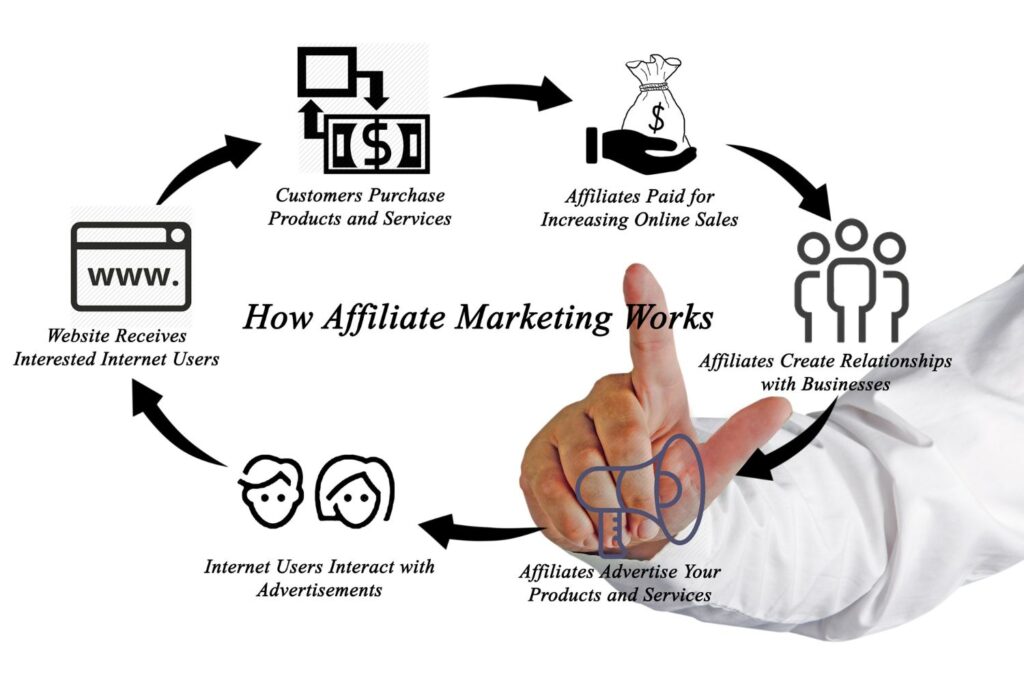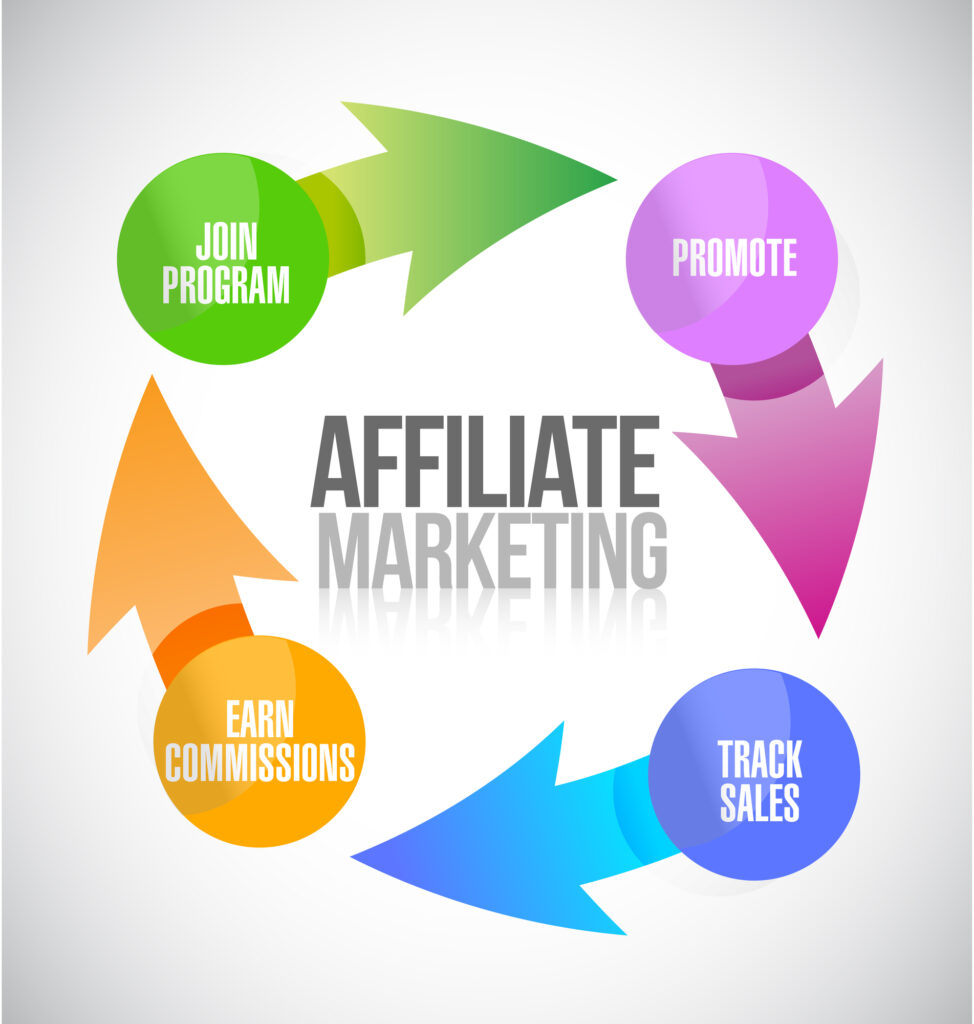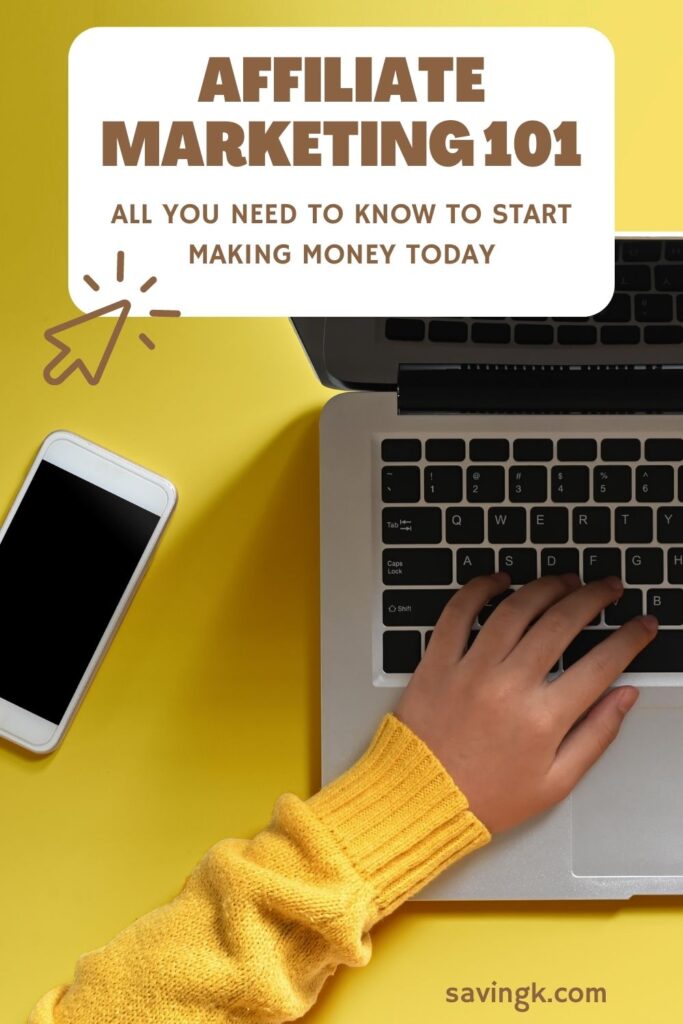
If you’ve ever heard of affiliate marketing but weren’t quite sure what it was, you’re in the right place. In this blog post, we’ll give you a crash course in affiliate marketing 101 so that you can understand what it is, how it works, and whether or not it’s something that could be a good fit for your blog or business.
Contents
What is Affiliate Marketing?
Affiliate marketing—also called performance marketing—is a type of performance-based marketing in which a business rewards one or more affiliates for each sale or lead generated by the affiliate’s own marketing efforts.
How Does Affiliate Marketing Work?
There are four main parties involved in affiliate marketing: the advertiser (also known as the merchant), the publisher (also known as the affiliate or influencer), the network that brings the merchant and publisher today, and lastly, the consumer. Other parties that may be involved include OPMs and tools which we will also discuss.
The advertiser—or merchant—is the company that has a product or service to sell. They partner with an affiliate program—a group of publishers who have agreed to promote the advertiser’s products or services in exchange for a commission on each sale or lead they generate.
The publisher is an individual or company who agrees to promote the advertiser’s products or services on their own website, blog, social media channels, etc., in exchange for a commission on each sale or lead they generate.
The network is the infrastructure that connects the advertiser and publisher and facilitates the tracking of sales or leads back to the affiliate. There are many different affiliate networks, each with their own unique offerings. Here is a list of the main affiliate networks that I currently work with (in alphabetical order to not show favoritism):
- Amazon Associates (Amazon created the first affiliate program in 1995)
- Avantlink (focuses on outdoor merchants)
- CJ Affiliate (formerly known as Commission Junction)
- Impact (formerly known as Impact Radius)
- Linkconnector (ingenius tracking solutions such as “naked coupon technology”
- Pepperjam (formerly known as Google Affiliate Network and bought by Partnerize)
- Rakuten (formerly known as Linkshare)
- ShareASale (bought by Awin, formerly known as Affiliate Window)
There are also “sub-affiliates” which are actually affiliates but act as a network and share the commission with publishers. Some publishers prefer to use these so they don’t have to hassle with joining all of the various networks and keeping their links updated. Plus many sub-affiliates are able to negotiate higher commission rates that smaller publishers cannot get themselves. Some examples of sub-affiliates are:
Finally, the consumer is the person is the ultimate end-user of the product or service being offered by the advertiser. The consumer is the one who sees the publisher’s promotions and decides to click on one of the links to learn more about or purchase the advertiser’s product or service.
Additional parties included may include outsourced program managers (OPMs) and tools.
OPMs are third-party agencies that manage affiliate programs on behalf of advertisers. They often have relationships with multiple networks and can offer their clients a one-stop solution for affiliate marketing.
Affiliate tools—also called publisher tools—are software solutions that help with various aspects of affiliate marketing, such as tracking, reporting, and content. One example of this is Affluent which pulls in network data into one dashboard to make reporting easier.

Affiliate programs typically work by having the merchant handle all the logistics involved in selling products or services, processing customer orders and payments, and shipping merchandise—all while the affiliate sits back and collects a commission for each agreed-upon action completed by the visitors the affiliate sends to the merchant’s website via an affiliate link. Typically, users are completely unaware that they are part of an affiliate system.
Why Does This Type of Marketing Matter?
Affiliate marketing is one of the most popular types of performance-based marketing because it’s a win-win for everyone involved. Advertisers get more exposure and sales for their products or services, publishers get commissions for promoting those products or services, and consumers get the product or service they’re interested in at no additional cost to them.
What Kinds of Companies Use Affiliate Marketing?
Affiliate programs are most commonly used by e-commerce websites, but they can also be used by companies with brick-and-mortar stores, companies that sell services, and even other websites. The biggest factor in determining if a company uses an affiliate program is whether its products are suited to this type of promotion—and whether either party is willing to invest time and effort into making it work.
How Can I Get Started With Affiliate Marketing?

If you’re interested in becoming an affiliate marketer, the best way to get started is to sign up for an affiliate program with a company or website that you trust. This will give you access to their promotional materials and allow you to start promoting their products or services. Remember, always promote products or services that you would actually use yourself—because your readers will resonate better with your content if it’s genuine and authentic.
Affiliate Marketing Courses
If you want to learn more about performance-based marketing, there are a number of online courses that can teach you the ropes. Here are a few to check out:
The Affiliate Marketing Masterclass
The Affiliate Marketing Master Class Step By Step Guide 2022 by Udemy covers everything from finding the right affiliate program, to creating effective affiliate links, to increasing conversions, and more. Get 80% off through our link!
The Complete Affiliate Marketing Bundle
The Complete Affiliate Marketing Bundle by StackSocial includes 7 different courses that will teach you everything from the basics of affiliate marketing, to building a successful website, to creating effective promotional materials. This has a $1592 value, but through our link, you can get it for only $29!
Ultimate Affiliate Marketing Class For Beginners
The Ultimate Affiliate Marketing Class For Beginners 2022 from Skillshare usually has over one thousand students and is geared towards people who are new to affiliate marketing, and covers the basics of how to get started, as well as some tips and tricks for success. Start this course now for Free through our link!
While there are many other courses available online, these are just a few that we recommend checking out if you’re interested in learning more about the affiliate industry.
Conclusion
In short, affiliate marketing is a type of performance-based marketing in which businesses reward affiliates for each sale or lead generated by the affiliate’s own marketing efforts. If you’re thinking about incorporating affiliate marketing into your business strategy, we hope this overview has given you a better understanding of how it works and whether or not it could be a good fit for your company. Thanks for reading!





